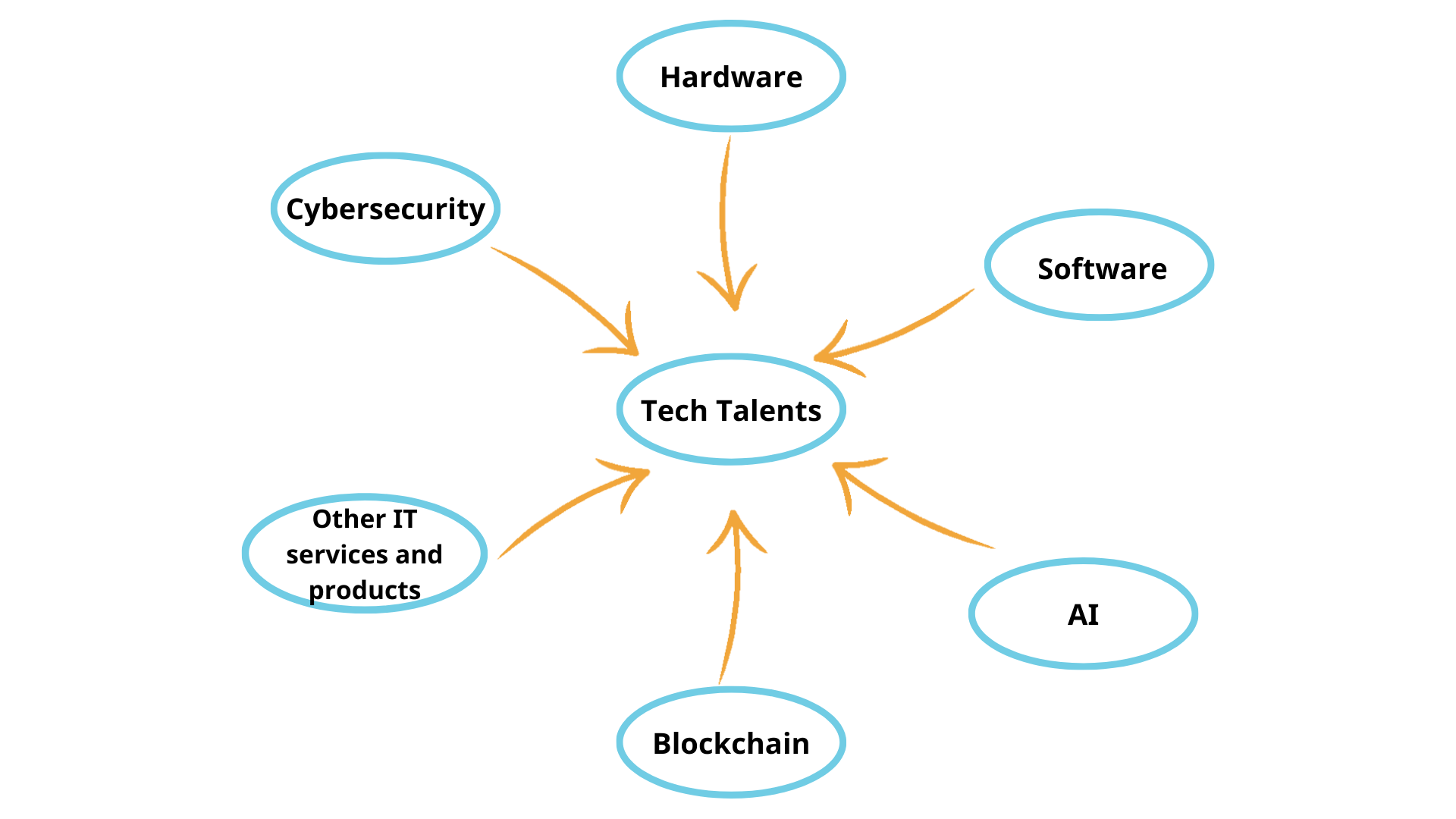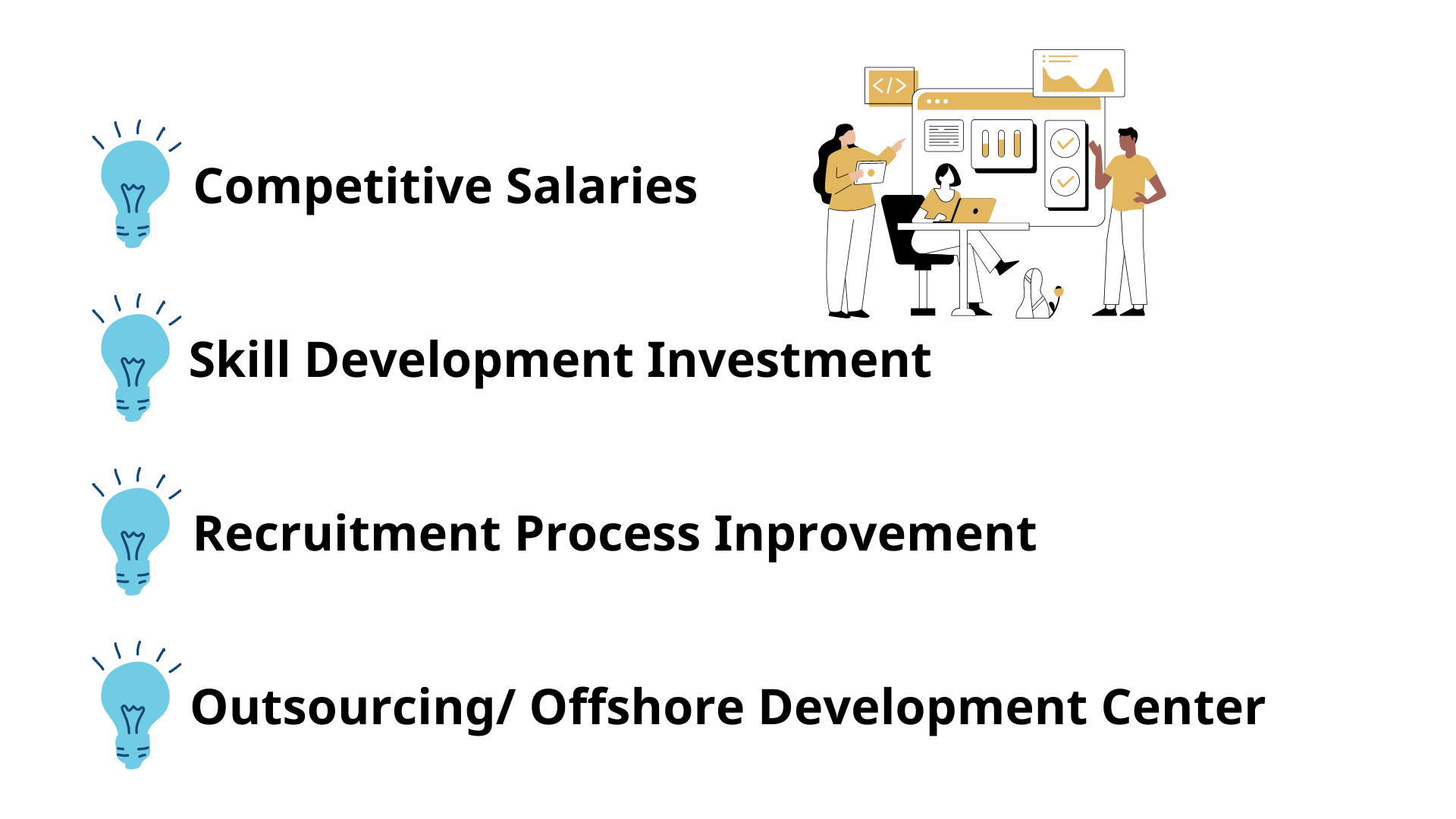Information Technology in this day and age is no longer merely about installing software and hardware or dealing with computer issues. It has been developed into such an “empire”, developers, thereby, are in a great demand. They:

Hence, businesses and organizations are inevitably facing the severe shortage of tech talents across the world. In order to stay ahead of the curve, we need to understand the causes and outline some feasible solutions to tackle the problem.
It is unarguable that no matter what industry you are in, hiring the right talents is getting harder, especially in the IT one. Results from a study of McKinsey and Company showed that in the next five years, the proportion of large expecting skill shortage will be 44%. Another study points out that 69% of businesses worldwide find it hard to connect their job opportunities with the qualified candidates who have needed skill sets. Besides, the global talent shortage will be more than 85 million by 2030, leading to the revenue loss of 8.4 trillion among companies worldwide.
What are the reasons for the shortage? While some are complicated (eg: the industry is moving and developing so fast that the efforts to re-skill and up-skill cannot keep up, etc), there are some to take into consideration. According to a survey of TalentLMS over 1200 employees working in a IT/tech/software department in US, some contributing factors are:
Businesses are forced to pay more in order to attract and retain talents. As a result, a large number of small and medium companies cannot compete with the large ones in an effective way due to this kind of financial burden, which will deter those companies from thriving and expanding to a larger scale.
The product performance and innovation are also detrimentally affected. To put it another way, a lack of skilled developers enables businesses to fill open positions, thereby delaying the process of planning, developing and delivering IT products or services. Statistics showed that unfilled positions could decrease a company’ productivity level by about 65%. And other mentioned future impacts.
In an attempt to tackle this problem, following are some potential solutions:

Even if it will be challenging for many companies, we have to admit that competitive salary and other related benefits are always the top criteria when a developer chooses a company to work for. Hiring developers seems to be tougher than ever, therefore, it’s wiser to maintain your current team members by increasing benefits and pay. This will encourage long-term commitment.
Setting salary aside, businesses should offer more opportunities for their employees to up-skill and re-skill. In this day and age, AI, cybersecurity or blockchain are just a few of emerging technologies that developers have to learn and keep up to bridge the gap. So encouraging tech talents to enrich their knowledge or providing them with training courses is a win-win situation, as they can have a good grasp into their field and use what they learn for complex databases which helps companies close the skill gap and thereby, address the talent gap. No doubt, knowledge acquisition of current and future technological advancements plays an important part in catering to the developer shortage.
Recruiting highly-skilled tech talents is getting more challenging during this time, especially when developers also reach out to seek job opportunities remotely, making it even harder finding ideal candidates. Based on our own experience, many companies are at a loss at this point when following conventional yet effective recruitment processes. Those will cost your business both money and time. So it’s important to optimize your process from scratch, be accurate and clear about your expectations.
(Read more: How to Recruit Developers: Tips for Making Effective Hiring Decisions)
Outsourcing IT products and services to another external vendor or building offshore centers is an absolutely viable solution for developer shortage. Those approaches are perfect for companies that want to focus on core business while saving their time and money during recruitment and operation processes. Simply put, seasoned developers are expensive while companies are struggling to meet their needs. There are only a few of them who are willing to lower their expectations. As a result, you can hire developers at the same or even higher level of expertise from countries with cheaper labor cost while paying considerably lower salaries. Other expenses such as for insurance, sick leaves, recruitment, etc can be eliminated. And the most important point is that you can have access to a wider talent pool which helps to close the developer shortage gap effectively.
(Read more: In-house Development Vs Outsourcing Development: Which way to go?)
It is undeniable that developer shortage is a huge problem during this time, but it can be solved. Organizations can maintain competitive salaries, invest in training and sharpening developers’ skills, optimize recruitment processes or hire offshore tech talents/ centers. Considering applying one or combining 2 to 3 of the mentioned solutions based on your company’s situation and needs can mitigate or even close the talent gap.
(For free consultation, visit us - NSC Software Outsourcing Company)